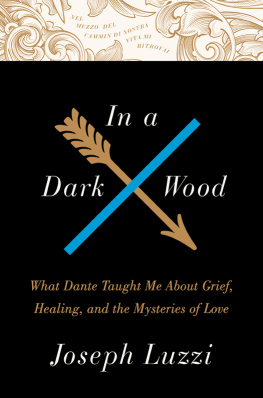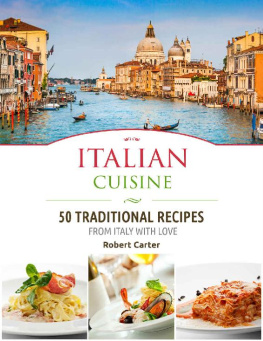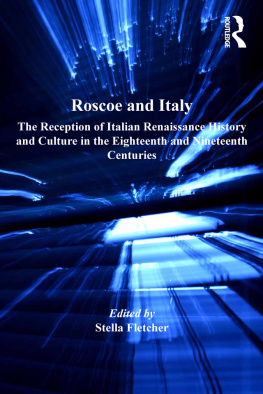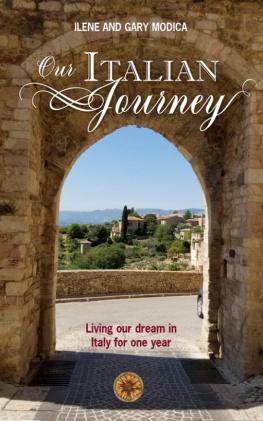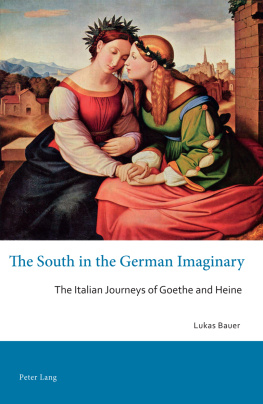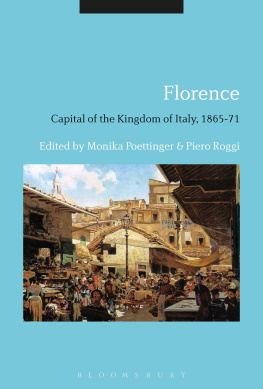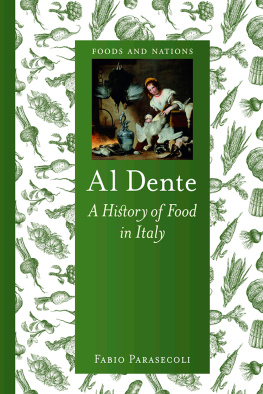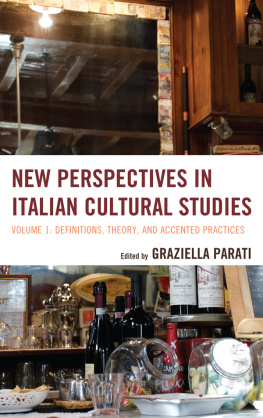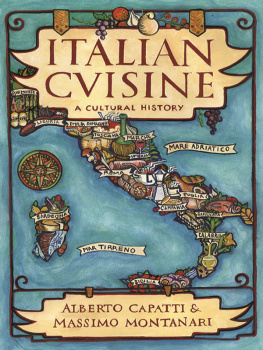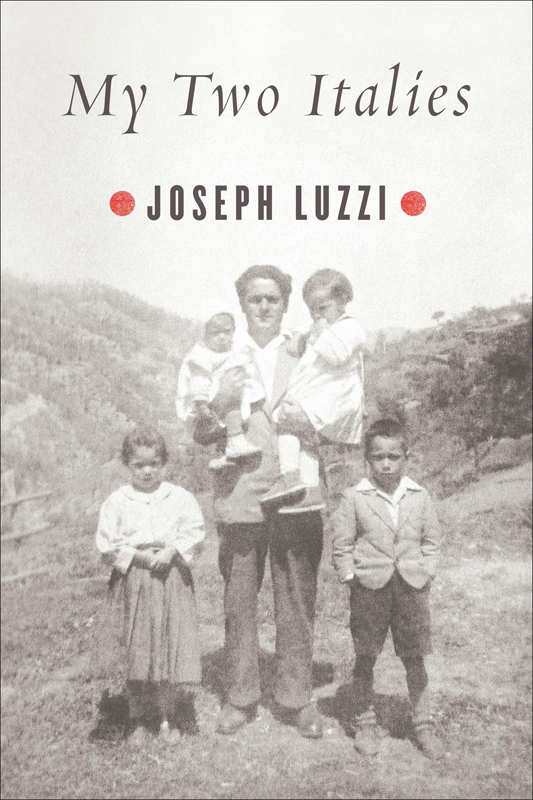Contents
Guide

To Helena Baillie
incipit vita nova
Si vulissi sappiri i secreti e ra casa, dumanna i criaturri.
If you want to know the secrets of a family, ask the children.
Calabrian proverb
Contents
Authors Note
This is a work of nonfiction; some names and identifying details have been changed to preserve anonymity. I drew on my journals, notes, interviews, and researchas well as my own memoryin reconstructing the events and personalities of this book, all of which come from real life. In creating this mix of history and narrative, both private and public, I have tried to honor the words of Italys greatest novelist:
We ourselves, with great diligence if nothing else, have examined and collated all the printed [accounts] and several unpublished ones, and most of the few official documents that have survived; and we have attempted, not to give the material the final form that it deserves, but at least to do something with it which has never been done before.
Without presuming to put words in Alessandro Manzonis mouth, I think he means that however much a writer would like to solve the riddles of the past, he soon learns that the best he can hope for is to bring them truthfully and vividly to lifeand leave any final decisions to the reader.
Introduction: The Witch of Naples
You killed him! You killed him!
Gius, aspetta, my mother called as I fled the kitchen in tears, accusing her and my father of murder on the holiest Catholic day of the year. Easter Sunday had started with such promise. That morning, the house had been filled with the smell of frittata, a sausage, egg, and cheese casserole that left rose-colored oil slicks on your plate. I mopped them up with u panu di Pasqua , the Calabrian Easter bread made from two hard-boiled eggs baked into a figure-eight-shaped dough that was flavored with anise.
As the flavors were blending, I had awaited the arrival of my favorite relative, Cumara Amandina. The mere mention of my godmothers name could halt card games between my father and his expat circle. She had earned the most glorious title any Calabrian woman could hope for: fimminella, little woman. She who cooks, cleans, bears children, nurses grudges, would sooner self-flagellate than commit adultery, and doesnt put on too much weight with the passing of years. (As opposed to the non- fimminelle , huge women who roamed Little Italy like mastodons in black dresses.)
The gift of beauty didnt end with Amandina. She had three girls, and the youngest, Giuliana, had earned that other honor reserved for the Calabrian female elite: she looked German. My people revered those few fair-haired creatures with blue eyes and light skin, women with none of the facial hair that afflicted so many of my darker relations. I was one of these black-haired and brown-eyed creatures myself, but I too had something that set me apartsomething suspiciously merican that seeped out of my adventure books and striped rugby shirts. Giuliana and I seemed destined for each other from childhood. Had we met ten years earlier and thousands of miles away in a southern Italian village, we would have been the occasion for an exchange of livestock and toasts to healthy male children. As it was, she and I just stammered around each other, too paralyzed by old-world expectations to have anything close to a normal conversation.
Amandina arrived, and with a living, breathing present: my very own Easter rabbit. All during childhood I burned with envy as I watched other children care for their pet cats, hamsters, even parrots and lizards. Though our yard teemed with winged and hoofed animals of all kinds, our home was off-limits to the nonhuman. I case sunu per gente e i animale per mangiare (Houses are for people and animals are for eating), my parents would say. Anything with four legs was banished from the house. Especially dogs, the animals I yearned for more than any other. I often saw my parents carrying a decapitated chicken or a bucket filled with crows shot from a downstairs windowPasquale and Yolanda Luzzi were hardly the ideal stewards for mans best friend. The one dog we had, Sam, was kept in an escape-proof doghouse sealed with wire mesh. Sam was no fool: he ran away a few months after arriving. Maybe he saw my father whaling away on our poor goat, as was his habit, and realized he would be much better off with a real American family.
I took the rabbit in my arms. Circumstances had kept me from becoming an animal person, but this guy, with his white fur and gentle eyesa present from my favorite relative to bootwas different, just like Cumara Amandina, who was much more delicate than the bruiser Calabrian matrons who poured into our home on Sundays. I would cherish him, I swore to myself. Id make sure that the creature enjoyed a different fate from Sams. My mother and father smiled, Amandina gushed, and the bunny went back in his box.
That afternoon I imagined that the rabbit was resting while I played outside. In truth, he was about to face an ordeal that would have shocked even battle-scarred Sam. Apparently my mother and father werent just admiring the rabbits dreamy eyes; they were sizing up his haunches. I dont know what it tookmy mothers usual two brisk whacks with a stick to the back of the skull or my fathers preferred twist of the neck in his thick fingersbut by five p.m. my pet had become an entre. I came into the kitchen to find him splayed out, his glycerine blue eyes lifeless and coated in oil, over a bed of roasted potatoes.
It took my mom an hour to calm me as she explained that she and my father hadnt tricked me. They had planned it all along and just assumed that I knew what was coming. She spoke with a smile. That was the worst of it: to her, destroying my pet was no different from weeding the garden.
I followed my mother to the kitchen table, slunk back into my abandoned seat, and, tears spilling onto my napkin, ate my pet rabbit.
* * *
When I went to sleep that night with a belly full of my godmothers gift, I knew I had done something not necessarily wrong, but certainly strange: eating a pet bunny may have been acceptable in Acri, the Calabrian hill town where my family had lived before emigrating, but not in the suburban Rhode Island town where I grew up. I had to admit, the rabbit was delicious. But what if my friends found out? It wasnt just the slaughter that troubled me. It was the feeling that everything I was learning in school, seeing on television, and picking up from my friends was pulling me away from my familys world.
Around this time I was named to the Little League all-star team, a group of local boys who represented our town in a nationwide baseball tournament. After our third straight win, I came home bursting with joy: my cousin had pitched a no-hitter to advance us deep into the state play-offs. My eyes adjusted to the change in light as I entered my fathers lair: the refurbished basement where he held court, seated at the head of the dinner table in near darkness to reduce the electricity bill.
Pap, abbiamo vinto, abbiamo vinto! (We won, we won!) I exclaimed.
He fixed me with a sharks stare and spoke in Calabrian.
I heard you made a fool out of yourself. And the whole town was watching.
I buried my face in my glove and ran from the room. It was not enough that I had been chosen for the team, nor that we had won. I batted .556 and fielded a flawless third base during that play-off run. But for my father all that mattered was that one fateful at bat, when I waved at a pitch nearly over my head, my hands squeezing the bat so hard that they creased the grip. A home run in front of the towns faithful would have brought me the approval that was missing in our split-level on Batterson Avenue. He was right: I had strode into the path of the stitched leather ball, swung from the heels, andlike all those who daydream in front of fastballsstruck out.


